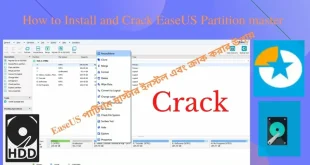Starting a trust is a wonderful way to bring meaningful change to society. However, to truly make an impact, your trust needs to be financially sustainable. Securing funding becomes much easier when your trust is registered under sections 12A and 80G of the Income Tax Act, 1961. These registrations provide significant tax benefits to donors and help your organization gain credibility. In this article, we’ll cover the importance of 12A and 80G registration, and provide a step-by-step guide on how to register for these certifications after trust registration.
Understanding 12A and 80G Registration
Before diving into the registration process, it’s crucial to understand what 12A and 80G are. Section 12A allows trusts and NGOs to be exempt from paying income tax, thereby channeling their resources towards charitable activities. Section 80G, on the other hand, allows donors to claim tax deductions on donations made to your trust, making your organization more attractive to potential donors.
Why is 12A Registration Important?
12A registration provides tax exemptions to your trust. Without it, all income generated by your trust, including donations and grants, may be subject to taxation. The tax savings gained through 12A can be redirected towards the cause your trust supports. Moreover, getting a 12A certificate is often a prerequisite for availing government grants and other funding opportunities.
Benefits of 80G Registration
Donors are motivated to contribute more when they can claim tax deductions on their donations. By having 80G registration, you make it financially rewarding for donors to support your cause. Donors can receive a 50% deduction on their taxable income for contributions made to your trust, which makes your organization a more appealing option for charitable giving.
Eligibility Criteria for 12A and 80G Registration
To register for 12A and 80G, your trust needs to fulfill certain criteria. Your trust must be engaged in charitable or non-profit activities, and your activities should not have a commercial purpose. Additionally, your trust should have valid trust deeds and appropriate documents such as PAN, audited financial statements, and details of trustees. Let’s go through the step-by-step process of registering under sections 12A and 80G.
Step-by-Step Process to Register for 12A and 80G
Step 1: Trust Registration
Before applying for 12A and 80G registration, it is essential that your trust is officially registered. You can register a trust as a public charitable trust, a society, or a Section 8 company. The most common type is the public charitable trust. Make sure that your trust registration online documents are complete, as these are required for subsequent registrations.
Step 2: Prepare Documents for 12A and 80G Registration
To apply for 12A and 80G, you will need the following documents:
- Trust Deed – This is the legal document that outlines the objectives and regulations of the trust.
- PAN Card of the Trust – Ensure that your trust has a PAN card, as it is mandatory for all transactions.
- Trust Registration Certificate – The document received during trust registration.
- Financial Statements – Audited financial statements, including the balance sheet and income-expenditure statements, for the last three years (if available).
- Details of Activities – A detailed description of the activities your trust has undertaken since registration.
- List of Trustees – Details of the trustees involved in the management of the trust.
Step 3: Filing Application for 12A Registration
Once the documents are ready, you can proceed to apply for 12A registration. The application can be filed through Form 10A, which is available online on the Income Tax Department’s website. You will need to attach the required documents along with the form.
The application for 12A registration is submitted to the jurisdictional Commissioner of Income Tax (Exemptions). Upon receipt of the application, the Income Tax authorities may call for additional documents or an interview to verify the activities of your trust.
Points to Remember While Applying for 12A
- The application must be made within one year of trust formation.
- All details must be accurate, and any discrepancies could lead to delays or rejections.
- After review, the Income Tax Commissioner will issue a 12A registration certificate, which grants tax exemption status to the trust.
Step 4: Filing Application for 80G Registration
After obtaining 12A registration, you can apply for 80G registration. The application for 80G registration is submitted through Form 10G. Just like the 12A application, this form is also available on the Income Tax Department’s online portal.
The documents required for 80G registration are largely the same as those for 12A, with an emphasis on proof that the trust’s activities are genuinely charitable. The authorities may also verify your organization’s activities to determine eligibility.
Points to Remember While Applying for 80G
- The 80G registration allows donors to claim deductions for their contributions, so all documents should clearly demonstrate your trust’s charitable activities.
- Trusts engaged in religious activities are generally not eligible for 80G registration unless the primary focus is social welfare.
Step 5: Verification Process by the Income Tax Authorities
After the application is submitted, the Commissioner of Income Tax (Exemptions) will verify the details provided. They may conduct an inspection or request additional documents to ensure your trust meets the necessary requirements for charitable purposes.
Upon successful verification, the Commissioner will issue the 80G certificate, allowing your donors to claim tax deductions on contributions to your trust.
Validity and Renewal of 12A and 80G Registration
Earlier, 12A registration was issued for a lifetime, while 80G registration had to be renewed periodically. However, as per recent changes in regulations, trusts are required to renew both 12A and 80G registrations every five years. The process for renewal involves submitting updated financial statements and ensuring compliance with the conditions laid down by the Income Tax Department.
Benefits of Registering Under 12A and 80G
1. Tax Exemption for Trust
With 12A registration, your trust is exempt from paying income tax, enabling you to utilize more funds towards fulfilling your mission. This exemption not only helps in resource utilization but also provides a good impression to potential donors, as they see the commitment towards maintaining compliance.
2. Attract More Donations
With 80G registration, you make it easier for donors to support your cause since they can claim deductions on their taxable income. Donors prefer contributing to organizations that offer tax benefits, and having an 80G certificate is a great way to attract more donations.
3. Enhanced Credibility
The process of getting 12A and 80G registration requires transparency and accountability, which enhances the credibility of your organization. Potential donors and partners are more likely to support a trust that is recognized and compliant with tax regulations.
4. Eligibility for Government and Corporate Grants
Many government and corporate funding programs require the applicant organization to have 12A and 80G registration. Being registered under these sections can help your trust become eligible for these funding opportunities.
Key Considerations for Successful Registration
- Make sure to keep clear and accurate financial records. Any ambiguity in your accounts can delay or even derail your application process.
- Submit all required documents, and be prepared to answer questions from the Income Tax authorities about your trust’s activities and objectives.
- Ensure that your trust’s activities align with charitable purposes and do not have any commercial motive. The Income Tax Department will only approve applications that have a purely charitable focus.
Also read : Unique Furniture Ideas for Stylish Kids’ Bedrooms
Conclusion
Registering your trust under sections 12A and 80G is crucial for maximizing your impact as a charitable organization. It not only helps you save on taxes but also makes your trust more attractive to potential donors. The process involves careful preparation of documents, an understanding of eligibility requirements, and consistent efforts to maintain compliance. By obtaining these registrations, your trust can unlock significant benefits that will help sustain and expand your charitable activities.
If you have recently registered your trust, it’s a good idea to prioritize 12A and 80G registrations as your next steps. This will set your organization up for success, ensuring compliance and enabling you to build long-term relationships with donors. Remember, the credibility and financial health of your trust depend heavily on these registrations, so make sure to approach this process diligently.
Also read : Why Every Driver Should Carry a Tyre Sealant Kit
 Daily Blogger News Stay updated with the latest trends and insights. Your reliable source for daily updates and information.
Daily Blogger News Stay updated with the latest trends and insights. Your reliable source for daily updates and information.







